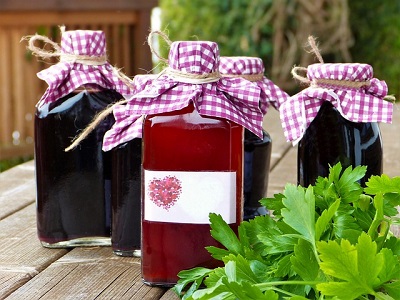Can Patients With Prostatitis Drink Medicinal Wine?
Medicinal wines are clear liquids made by steeping Chinese herbs in distilled spirits. Most medicinal wines are used orally, while a few are used externally with sugar or honey added to improve flavor and color.

A wide variety of medicinal wines are on the market with various effects. Many are not wine but over-the-counter drugs with therapeutic effects and cannot be drunk lightly.
Medicinal wines are broadly categorized into two types depending on the efficacy of their infused medicines.
One type of medicinal wine is mainly used for treating diseases. Their functions are to dispel wind, disperse cold and relieve pain, relieve tendons, and invigorate blood circulation. They are used primarily to treat wind-cold-damp paralysis, blood stasis and obstruction of disease, such as rheumatic and rheumatoid arthritis, rheumatism-induced lumbago and leg pain, and musculoskeletal injury. These medicinal wines include Bonesetting Wine and Rheumatic Bone Pain Wine.
The other category is the nourishing-based medicinal wines, which nourish qi and blood, tonify the liver and kidneys, nourish the heart, and tranquilize the mind. They are mainly used to treat qi and blood deficiency, liver and kidney, and weakness. These medicinal wines include Bazhen Wine, Ginseng Wine, Cortex Eucommiae Wine, Wolfberry Wine, and Hehuanpi Wine.
Prostatitis is a common disease in men, mainly caused by bacterial, viral and fungal infections, leading to hyperemia and edema of the prostate, thus inducing prostatitis.
So, can prostatitis patients drink medicinal wine? Is drinking medicinal wine good for treating prostatitis?
Medicinal wines can strengthen the body, but the patient can not drink medicinal wines during the attack of prostatitis.
Firstly, prostatitis must avoid irritating foods, including chili peppers, wine, ginger, raw garlic and other irritating foods. This is because these foods tend to induce or aggravate prostatitis symptoms during inflammation. Therefore, in principle, patients with prostatitis, especially during the attack, are not allowed to drink alcohol. Because chronic prostatitis is prone to recurrence, alcohol is one factor that leads to recurrence.
Secondly, medicinal wines stimulate the prostate tissue, make the prostate tissue contract abnormally, and easily aggravate the prostate congestion caused by prostatitis. This eventually leads to edema and swelling, which is not conducive to normal recovery from prostatitis.
Finally, medicinal wines stimulate the central nervous system of the brain and affect the central nervous system's control of the prostate. People are more likely to experience significant urinary frequency, incomplete urination, and urine dripping, which aggravates the condition of prostatitis.
Therefore, people with prostatitis not only should not drink alcohol but also reduce their intake of beverages that contain alcohol, such as medicinal wines, which can interfere with normal recovery from prostatitis.
Diuretic and Anti-inflammatory Pill is an alternative to medicinal wines that can effectively fight recurring prostatitis. Its herbal ingredients can penetrate the prostate membrane and the medicinal effect reaches the lesion directly, eliminating inflammation from the root and restoring the normal function of the prostate.
In addition to medication, patients with prostatitis can also pay more attention daily. For example, they can choose warm water sitz baths in the morning and evening, which is also an effective way to relieve the clinical prostatitis symptoms. At the same time, patients should pay attention to a light diet and not eat spicy and stimulating food. The patient should also quit smoking and avoid alcohol, stay up late, do not labor, avoid sitting for a long time, and ensure sufficient sleep and a certain amount of exercise to enhance their resistance.
Prostatitis is a preventable disease, and prevention is greater than cure. Patients have to develop good habits in daily life to avoid repeated recurrence.
You may also be interested in:
Chronic Prostatitis: Is It Better to Drink More or Less Water Normally?
Managing Chronic Prostatitis: Do You Need to Abstain from Alcohol?
Prostate Health Tips: Avoid These Post Sex Mistakes for a Healthy Prostate



